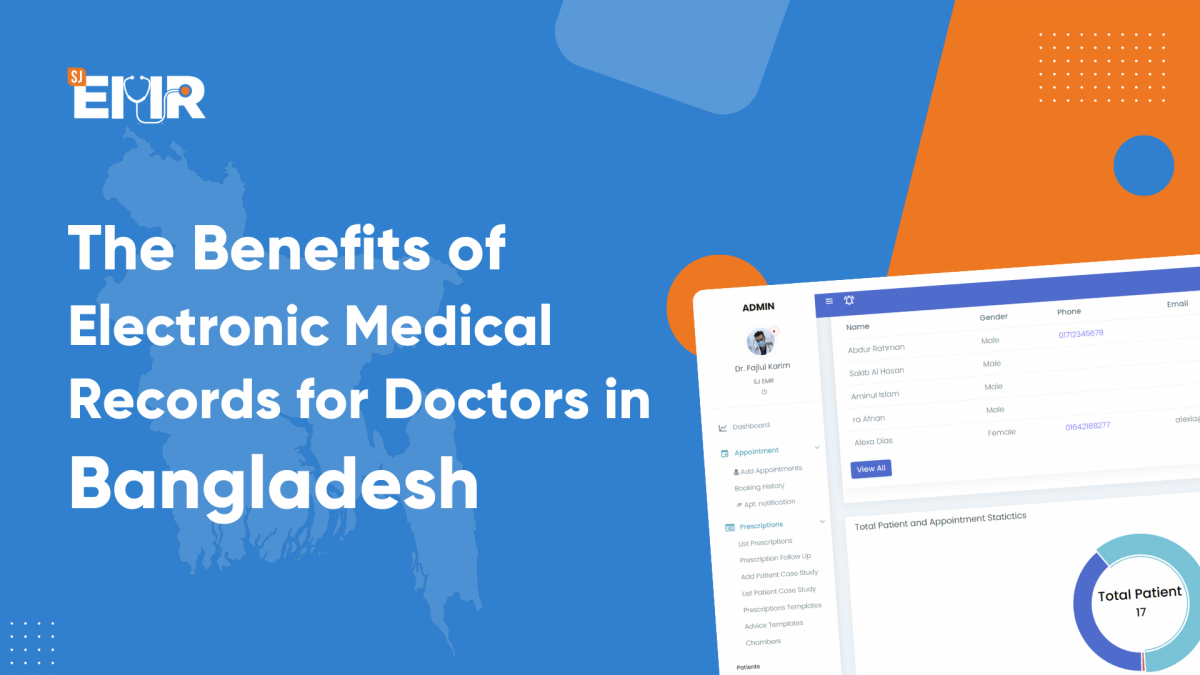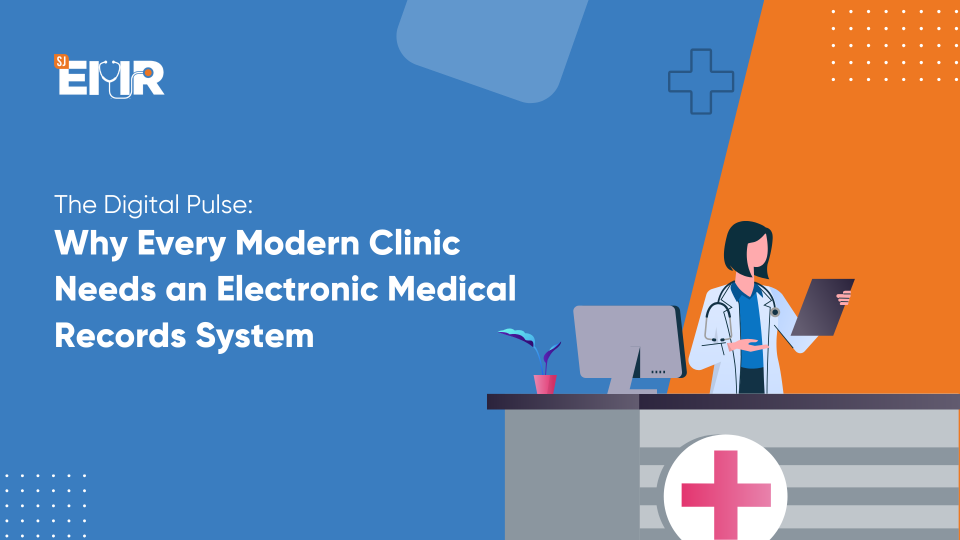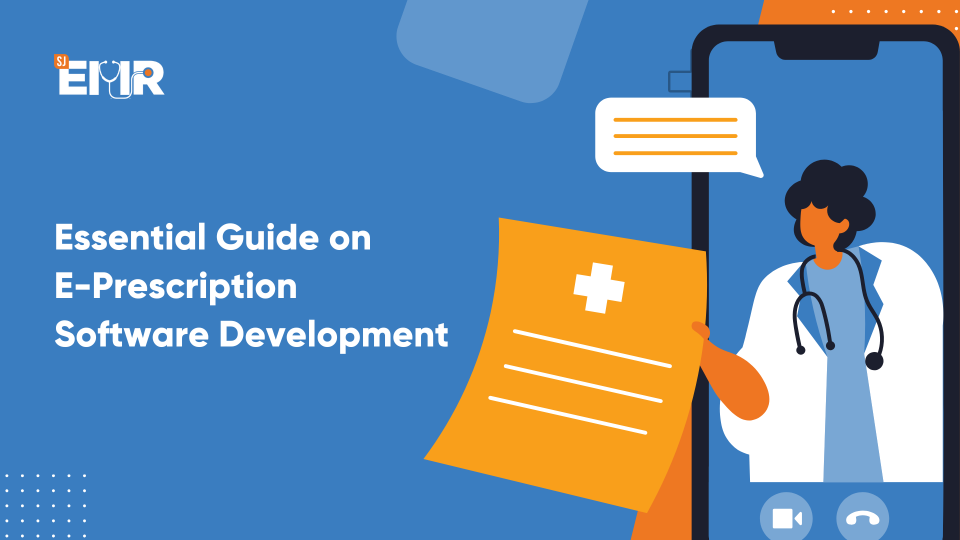The Benefits of Electronic Medical Records for Doctors in Bangladesh

SJ EMR’s CDSS Module! Why is it the Future of Patient Care and How Is it Empowering Doctors?
March 13, 2023
From Paper-based to Digital: How Bangladesh is Modernizing its Medical Records System
August 30, 2023Introduction
Understanding and managing the healthcare system is tricky. Consider this scenario:
In 2020, a critically ill patient was urgently brought to the emergency room at Chittagong Medical College and Hospital, suffering from multi-organ failure. To figure out the underlying conditions causing the patient’s deterioration, numerous tests were conducted. However, there was no proper record-keeping system in place. Both the patient and the medical staff were unable to maintain a comprehensive medical history, leading to delays in treatment. Furthermore, important documents were frequently misplaced or forgotten.
Regrettably, this lack of documentation is not an isolated incident, even with digital advancements in healthcare. It has become a widespread issue in Bangladesh. Yet another reason why adoption of EMR in Bangladesh is a must.
Why is an EMR a must in Bangladesh?
Countless patients are deprived of timely and appropriate treatment, which, in some cases, tragically leads to preventable deaths. Additionally, the burden of repeated tests adds to the financial strain experienced by impoverished patients.
The absence of efficient and organized medical record-keeping in Bangladesh poses significant challenges to patient care and highlights the urgent need for improved documentation practices in healthcare facilities all over the country.
The Electronic Medical Record (EMR) is a lifesaver for patients, sparing them from repetitive tests and delays in critical treatment. With a simple click, valuable time is saved, potentially saving lives. Without an EMR, physicians may delay initiating treatment, causing unnecessary suffering. With the increasing demand for efficient and accurate healthcare services in Bangladesh, EMRs have emerged as a powerful tool that enhances the way doctors provide care to their patients.
The Benefits of Electronic Medical Records for Doctors in Bangladesh
The benefits of Electronic Medical Records are endless, but to begin with, here are a few:
1. Streamlined Data Access and Organization
EMRs for doctors eliminate the hassle of physical paperwork and provide doctors with instant access to patient information. With a few clicks, doctors can retrieve comprehensive medical histories, lab reports, and previous diagnoses, enabling them to make informed decisions promptly.
2. Enhanced Patient Safety
By leveraging EMRs and Electronic Health Record (EHR) systems, doctors in Bangladesh can significantly reduce medication errors and improve patient safety. EMRs flag potential drug interactions, allergies, and adverse reactions, ensuring that doctors prescribe the right medications and avoid potential risks.
3. Efficient Workflow and Time Savings
Gone are the days of searching through piles of paper records. EMRs and Health Information Systems (HIS) simplify the documentation process, allowing doctors to update patient charts seamlessly and access critical information quickly. This streamlined workflow saves time, enabling doctors to focus on what matters most—providing quality healthcare to their patients.
4. Better Collaboration and Coordination
EMRs facilitate seamless communication and collaboration among healthcare providers. As a result, doctors can easily use the e-health infrastructure in Bangladesh to share patient records, test results, and treatment plans with specialists, ensuring a coordinated approach to patient care. This fosters a holistic view of the patient’s health and enables doctors to make more accurate diagnoses and treatment decisions.
5. Data Analytics and Research Opportunities
With the integration of EMRs, doctors can take advantage of various benefits of Electronic Medical Records. Besides streamlining an efficient workflow, they can leverage data analytics tools to gain valuable insights into population health trends, disease patterns, and treatment outcomes. This data-driven approach opens doors for research opportunities, enabling doctors to contribute to medical advancements and improve healthcare practices in Bangladesh.
FAQs about Electronic Medical Records
How secure are electronic medical records?
EMRs prioritize data security through encryption, user authentication, and strict access controls. They comply with industry standards to safeguard patient information from unauthorized access.
Can doctors access EMRs remotely?
Yes, EMRs can be accessed securely from anywhere with an internet connection, allowing doctors to review patient data even outside the healthcare facility.
What happens if there is a power outage or technical glitch?
EMR systems have backup measures in place to ensure data integrity and availability during such situations. Doctors can rely on contingency plans and alternative power sources to continue accessing patient records.
How can EMRs benefit patients?
EMRs enable doctors to provide more personalized care, reduce medical errors, and ensure seamless coordination among healthcare providers. Patients can experience improved treatment outcomes and a more efficient healthcare journey.
The Future of Medical Record-Keeping in Bangladesh
The implementation of Electronic Health Record (EHR) systems in public hospitals in Bangladesh faces challenges such as the high patient load and limited human and ICT (Information and Communication Technology) resources. To address this, the Ministry of Health and Family Welfare is actively working on a project to evaluate and establish a comprehensive strategy for the adoption of Health Information Systems (HIS) in the country, including the utilization of EHR systems.
Diverse and complex healthcare system of Bangladesh
Bangladesh’s healthcare system is diverse and complex. In developing nations, e-Health holds immense potential for ensuring effective care delivery, accessibility, and cost efficiency. Notably, Bangladesh has made significant strides in integrating digital technology into healthcare, particularly in the realm of e-Health. Both the government and commercial sectors have contributed to the development of the country’s e-Health infrastructure.
The implementation of EMR systems holds immense promise in providing timely information for strategic planning, potentially saving lives, and mitigating the risk of antibiotic resistance. This electronic-based system also prioritizes patient safety, ensuring that all essential components of an EMR record are standardized to achieve national health goals, as demonstrated by studies conducted in other developing countries.
Adoption of EMR by the Bangladesh Government
In Bangladesh, the government has set specific goals and plans for improving the health industry. By electronically gathering individual patient data through web browsers, a more efficient and productive healthcare experience can be achieved. While the adoption of EMR systems is currently observed in select corporate hospitals across the country, efforts are underway to expand their implementation and impact in the broader healthcare landscape. After all, the benefits of Electronic Medical Records are visible to everyone.
Overall, Bangladesh is committed to leveraging digital advancements and embracing EHR systems to enhance healthcare delivery, improve patient outcomes, and advance the nation’s health industry.
The adoption of EMRs in Bangladesh marks an exciting turning point in healthcare delivery. As technology continues to evolve, we can expect even more advancements in EMR systems. The future holds the promise of interoperability, where different healthcare facilities can seamlessly share patient data, leading to enhanced collaboration and continuity of care.
With increased connectivity and accessibility, doctors in Bangladesh will witness a remarkable transformation in patient care, driven by the power of electronic medical records.
Revolutionizing Healthcare in Bangladesh
In conclusion, the benefits of Electronic Medical Records for doctors in Bangladesh are undeniable. From streamlined data access and enhanced patient safety to efficient workflows and research opportunities, EMRs empower doctors to deliver quality healthcare like never before.
Revolutionizing healthcare in Bangladesh is a slow but steady approach. As the healthcare landscape evolves, embracing the digital transformation of medical record-keeping is crucial. By harnessing the power of EMRs, doctors in Bangladesh can truly revolutionize healthcare, ensuring better outcomes for their patients and shaping a brighter future for the nation’s healthcare sector.




